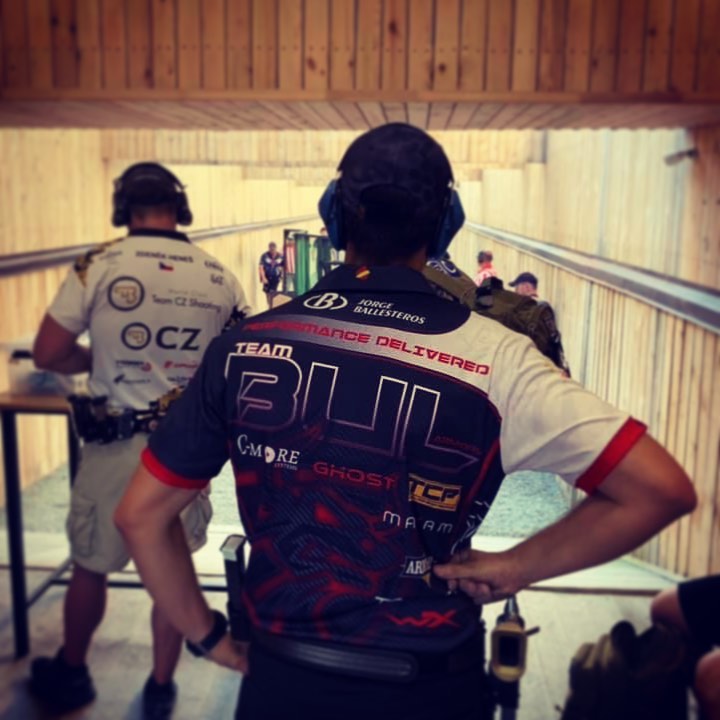Forging ourselves as shooters is not easy as you can see. Mastering each level of our training is increasingly complex and requires increasing dedication and effort. The levels must be trained separately and in a staggered manner. We cannot level up until we have mastered the level in which we find ourselves.
To reach this third level, we must realize that everything we have learned before must be internalized. In other words, we do not have to think about the act that we are performing; it must happen naturally. I always use driving as an example in which we perform multiple tasks (step on the clutch, select a gear, step on the accelerator, turn the steering wheel, look in the rear-view mirror, brake, etc.) without being aware of it.
The third level reflects our culmination as shooters. It combines all aspects of training that form our pyramid (precision, speed and coordination). At that point, we must be able to perform a fast draw, and shoot accurately and with a good cadence on a target located 20 meters away. We must react quickly on the exit and move with speed to a second position in which we control which foot acts as the brakes and which foot stabilizes to then re-perform with speed and precision two more shots on a final target. This is just an example of what we should be able to do at this level.
Every time we go to the shooting range and are aware of what our level is, we must keep in mind what we want to train on. If, for example, we are training specific exercises on precision, we should not mix it with running between shooting positions. Performing repetitions of the same exercise with only a few shots helps to consolidate concepts and, in the process, save ammunition.
It is very important not to rush and not to pass that level until we really feel able to do so. Completing a level not only means doing well in training, but it is also important to do well in competition. In competitions, sometimes we find situations that we haven’t trained on. We don’t have to worry about it. We must focus on what we know how to do, and whatever we don’t know how to do, we will have time to train on it. We should not fail a stage just because we don’t know how to apply the proper technique.
In this sport, there do not tend to be many surprises. Both nationally and internationally it is always the same shooters that usually take the top places. Luck is an almost nonexistent factor, taking into account the amount of technical aspects that need to be mastered.
Final conclusion
In our practice there are always certain exercises in which we fail or feel certain insecurities. It is important to emphasize them and not ignore them; we must leave the fun in the background. Seek that our training is fruitful and reach conclusions that help us to continue evolving.
Finally, I would like to say that perfection does not exist, but seeking it is what makes us better.

